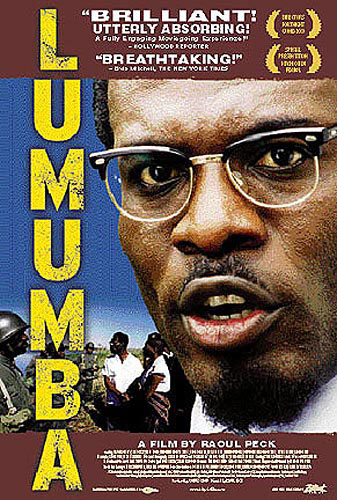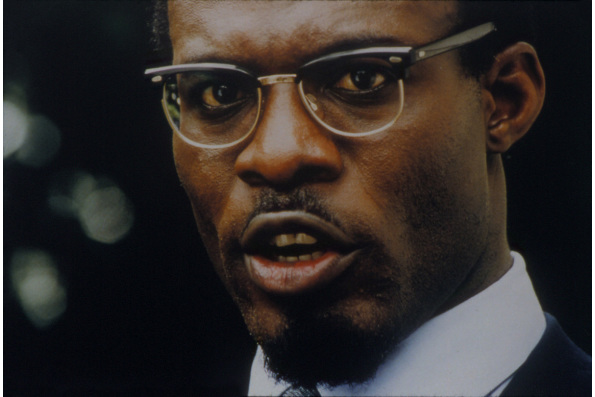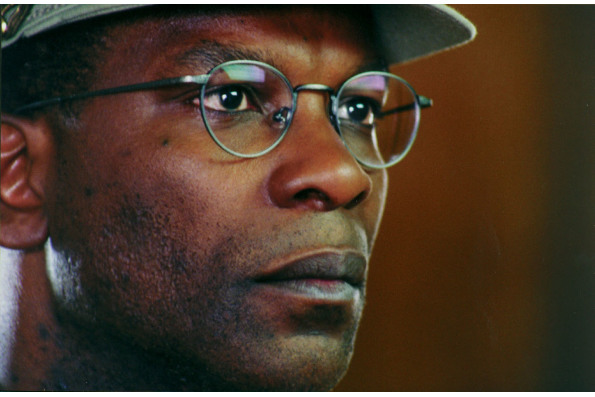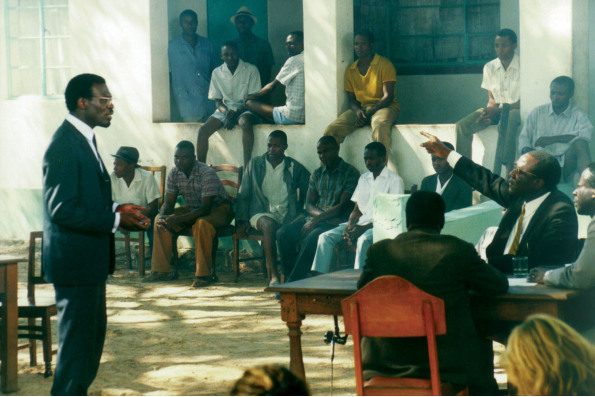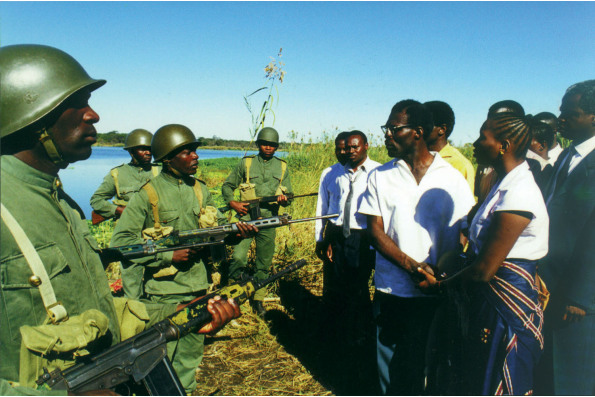Lumumba
From the director of I AM NOT YOUR NEGRO
Made in the tradition of such true-life political thrillers as Malcolm X and JFK, Raoul Peck’s award-winning Lumumba is a gripping epic that dramatizes for the first time the rise and fall of legendary African leader Patrice Lumumba.
When the Congo declared its independence from Belgium in 1960, the 36-year-old, self-educated Lumumba became the first Prime Minister of the newly independent state. Called "the politico of the bush" by journalists of the day, he became a lightning rod of Cold War politics as his vision of a united Africa gained him powerful enemies in Belgium and the U.S. Lumumba would last just months in office before being brutally assassinated.
Strikingly photographed in Zimbabwe, Mozambique and Belgium as civil war once again raged in the Congo, the film vividly re-creates the shocking events behind the birth of the country that became Zaire during the reign of Lumumba's former friend and eventual nemesis, Joseph Mobutu.
Raoul Peck
Raoul Peck was born in Port-au-Prince, Haiti. In 1961 his parents fled the Duvalier dictatorship, finding asylum and a new life in the recently independent Republic of Congo, which became their second home for nearly 25 years. Raoul Peck attended school in Leopoldville, later public school in Brooklyn, NY and finally Orleans, France. Upon completing his Baccalaureat, he left for Germany where he studied economics and industrial engineering. After completing his diploma, Raoul Peck worked for one year as a taxi driver in New York City while awaiting his acceptance at the German Film and Television Academy (DFFB) in Berlin. He was accepted along with 17 other colleagues into the class of 1984.
While a student at the DFFB, Peck completed his first award-winning full-length feature—a film made for $150,000—HAITIAN CORNER, shot in Brooklyn and in Haiti. Other projects soon followed, establishing him as one of the most prominent and prolific black filmmakers.
Between 1982 and 1990, Peck worked on numerous development projects in Europe and in Africa. He taught at the Berlin Film and Television Academy, at the F.E.M.I.S. (France’s national film school) where he worked with Krzysztof Kieslowski and Agnieska Holland, and at NYU’s Tisch School of the Arts. He returned to Haiti as Minister of Culture in the government of Prime Minister Rosny Smarth after the restoration of democratic rule.
Following political confusion and an 18-month struggle, Peck, along with Prime Minister Smarth and several other Ministers, resigned from his post. He left behind a number of important development projects, most importantly the groundwork for the first National Cultural Plan Directive of the Republic of Haiti.
Peck resumed his career as a filmmaker with the award-winning, feature-length documentary LUMUMBA—DEATH OF A PROPHET (1992) and MAN BY THE SHORE (1993), the first Caribbean film to be selected in Competition at the Cannes Film Festival. LUMUMBA was also presented at Directors Fortnight at the Cannes Film Festival.
Peck is the President of the Caribbean Federation of Film and Video, a member of the German Writer’s Guild, and a member of the influential French Authors/Directors/Producer’s Guild (ARP). In April 2000 he was named President of the French commission “Fond Sud” which allocates production funds of 2.5 million U.S. dollars in over 85 countries.
Peck is the Founder of the Fondation Forum Eldorado, dedicated to cultural development in Haiti and the Caribbean and working with schools and underprivileged communities in Haiti. For the work of the Fondation, Peck bought a movie theatre called the Eldorado in Port-au-Prince. With the help of contributions, the theatre has become one of the rare local facilities affordable to local artists and schools.
Awards include the 1994 Nestor Alemendros and the 2001 Irene Diamond Lifetime Achievement Award from the Human Rights Watch Organization. He has been decorated with the Honor and Merit Order (Knight) in Haiti and the Order of Arts and Literature (Knight) in France.
In 1997 Peck was guest artist at the Dokumenta in Germany, one of the two major world exhibits of contemporary art, where he produced and exhibited his award-winning film CHERE CATHERINE.
Recent retrospectives of Peck’s work have been held at Les Journees Cinematographiques de Lussas (August 1998), the American Museum of Natural History, Margaret Mead Film & Video Festival (November, 1998), and The Puerto Rican International Film Festival (September 1998).
Peck’s films have been shown at dozens of international festivals, including those in Cannes, Berlin, Toronto and New York. He has received numerous awards and prizes for his work. Peck’s films have been released theatrically and on television throughout the world. Peck has authored a book entitled “Monsieur Le Ministre, Jusqu’au Bout de la Patience” on his political and personal experience as the Minister of Culture in Haiti.
Awards and prizes for LUMUMBA include: Best Film, Pan African Film Festival LA 2001 Paul Robeson Award, Fespaco 2001 Best Film, Santo Domingo International Film Festival 2001 Audience Prize, Best Actor, Jury Prize, Grand Prize OCIC, 11th African Film Festival, Milan Italy 2001 Best Film by A Foreign Director, Acapulco Black Film Festival 2001
Raoul Peck lives and works in Voorhees, New Jersey, in Paris, France and the tiny town of Port a Piment, Haiti, where he owns two cows and a modest pineapple field.
Patrice Lumumba - Eriq Ebouaney
Joseph Mobutu - Alex Descas
Joseph Kasa Vubu - Maka Kotto
Maurice Mpolo - Théophile Moussa Sowié
Godefroid Munungo - Dieudonné Kabongo Bashila
Moïse Tshombe - Pascal Nzonzi
Walter J. Ganshof Van der Meersch - André Debaar
Joseph Okito - Cheik Doukouré
Thomas Kanza - Oumar Diop Makena
Pauline Lumumba - Mariam Kaba
General Emile Janssens - Rudi Delhem
Director - Raoul Peck
Screenplay - Raoul Peck & Pascal Bonitzer
Music - Jean-Claude Petit
Executive Producer - Jacques Bidou
Associate Producers - Diana Elbaum, Philippe Bober, Raoul Peck, Richard Boidin, Georges Goldenstern, Arlette Zylberberg
Production Manager - Patrick Meunier & Marianne Dumoulin
Director of Photography - Bernard Lutic
Sound - Dirk Bombey, Waldir Gonçalves & Jean-Pierre Laforce
Set Design - André Fonsny & Carine Tredgold
1st Assistant Director - Jacques Cluzaud
Casting - Sylvie Brocheré
Artistic Director - Denis Renault
Art Director - André Fonsny
Costumes - Charlotte David
Editor - Jacques Comets
Sound Mixer - Jean-Pierre Laforce
A JBA Production (France), Entre Chien et Loup (Belgium), Essential Filmproduktion (Germany), Velvet S.A. (Haiti), Arte France Cinéma, RTBF (Belgian Television), ARTE ZDF, Liberator Productions, FMB Films, SFP Cinema and Canal+, VRT, Cofimage 10
with the contribution of the Fonds Eurimages du Conseil de l'Europe, Centre National de la Cinématographie, Union Européenne, Centre du Cinéma et de l'Audiovisuel de la Communauté Française de Belgique and the support of The Fondation Gan pour le Cinéma, Ministère français des Affaires Etrangères, Agence de la Francophonie (ACCT), Foundation ABP EZEF
Filmed in Zimbabwe, Mozambique and Belgium



